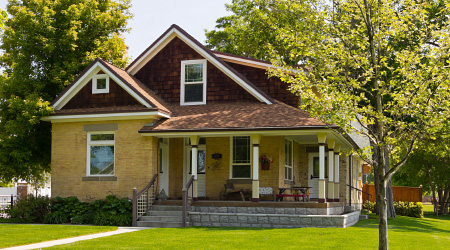Checklist For Home Buying

When purchasing a home, especially for the first time, it is important to understand what is important to you and to plan for the future accordingly. Many home buyers base their purchase specifically on how much they can afford regardless of other extenuating factors. This of course is a very shortsighted vision and doesn't take into account the myriad of different criteria which should inform the home buying decision. The following is a general checklist of how to evaluate a home for purchase.
The First Rule in Real Estate
Location is listed first because it may be the most important aspect when purchasing a home. Homes are normally long-term purchases of 5 to 10 years or more and their primary characteristic is their lack of mobility. Some of the most common reasons for purchasing a home based on location are school district quality, distance to work, proximity to friends and family, ease of access to infrastructure such as highways and the amount of restaurants and other entertainment activities. For some home buyers, location is the only aspect which will make or break the home buying decision.
First Impressions Make a Difference
Appearance may sound like a superficial and therefore unimportant aspect when buying a new home but it is indicative of neighborhood quality. New neighborhood obviously won't have a problem with appearance but a lot of information can be gleaned from older neighborhoods. Are lawns kept in good condition and weed free? Are cars parked in the yard or on the side of the house with oil stains on the driveway? While it is never good to judge a book by its cover you can still get an idea if it is classic literature or pulp fiction.
Enough Living Space for Everyone
When inside the home how does it suit your needs? Is there enough room for your existing furniture? Smart home buyers will thoroughly walk the premises and in some cases take measurements. This is to ensure a home can accommodate their current living arrangement in addition to future plans such as raising a family. It is important to predict your future needs as accurately as possible to make sure there are enough rooms, bathrooms, a large kitchen and in general enough space to move around.
Growth for the Future and Beyond
While expansion may not be likely due to the initial expense of purchasing the home it is always nice to have that option in a decades time. Having a backyard large enough to accommodate an in ground pool or to extend or add on to the existing structure are important considerations. The last thing any parents want to do is uproot their family especially for something which could have been prevented. Many track homes to not have lots large enough to accommodate additions or expansions. While not an overriding factor it's good to purchase a home on a large enough lot to accommodate some sort of future expansion.
Summary
It's bad enough having buyers remorse when purchasing a sweater or a laptop but imagine that same feeling after having lived in a new home for a few years. Take the time to evaluate what is most important to you and update your home buying checklist. When you're looking at properties or speaking with your agent make sure you're not wasting time looking at inappropriate properties. Home buying is more than just price per square foot, garden tubs and kitchen islands with fancy marble counter tops. A home is a refuge from the world and a place where memories are made so be sure it serves you well for decades to come.







